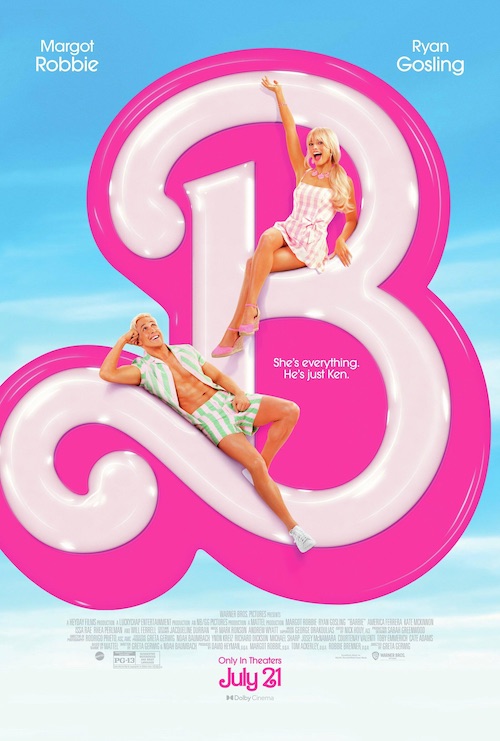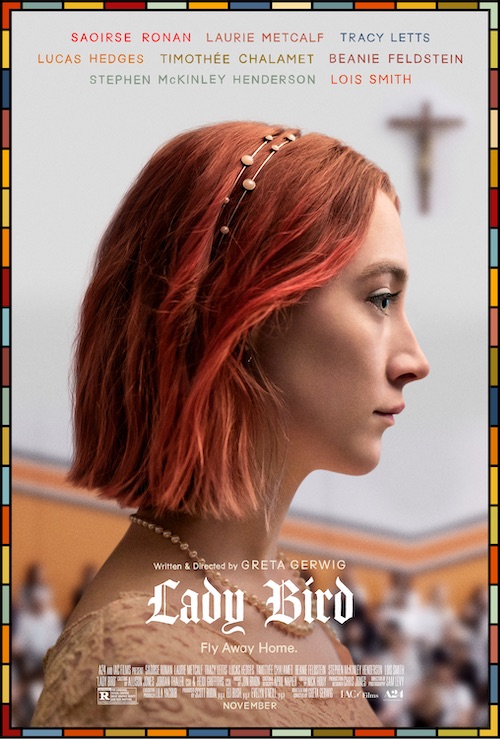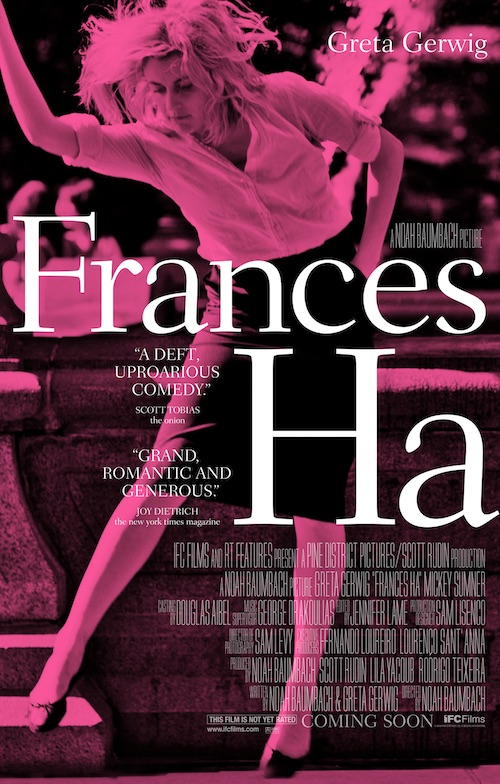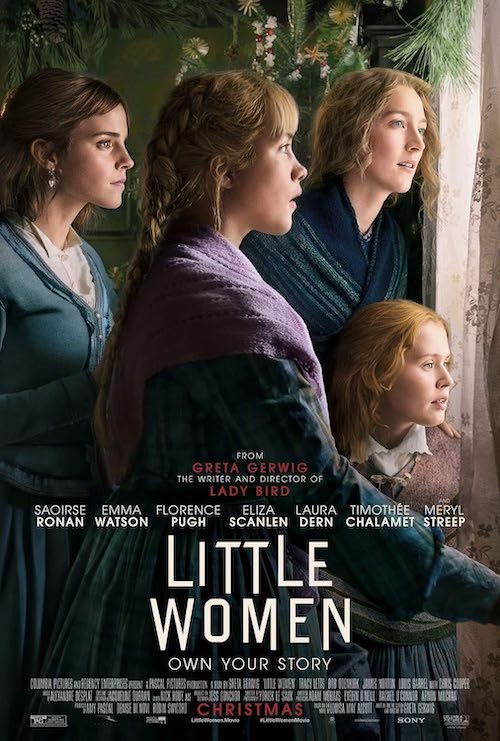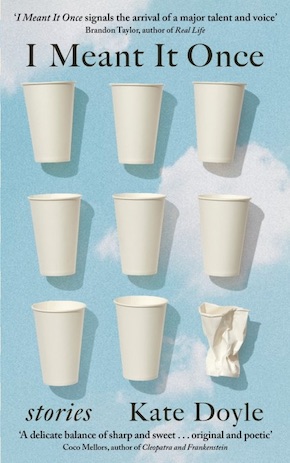No I won’t ‘calm down’ about Greta Gerwig
by Kate DoyleOn my desktop is an unfinished essay, a file called Greta Gerwig Won’t Win. I’ve been trying to write about Gerwig for some time, but I only started this version recently – post-Golden Globes, Oscars rumours simmering.
I thought Gerwig would be nominated for directing but have no chance of winning, and I was frustrated about it. In the end, even this was expecting too much: she wasn’t nominated.
I’m a bigtime fan of Gerwig: I admire the space she’s made in our culture for stories about women’s lives, and I’m moved by her energy, openheartedness, and attention to detail as a director. Plus I appreciate, immensely, her candour about her hopes and frustrations as a woman filmmaker: asked once, for example, why she cast handsome Louis Garrel as the famously unattractive professor in Little Women, Gerwig pronounced cheerfully, “I feel like men have been putting glasses on hot women forever and telling us they’re awkward. I can do whatever I want.”
Barbie, released last summer, was Gerwig’s ambitious third feature: a bright-pink, ensemble-cast, eccentric cinematic feat that broke box-office records. The week the film came out, I was in New York, where women (and sometimes men) wore head-to-toe pink on the subway, clustered giddily outside movie theatres, and generally relished the splashy pop culture moment. Barbie became a phenomenon, and Gerwig the first woman to direct a billion-dollar blockbuster.
Immediately, there were those who wanted to undercut this achievement. “Just a Mattel ad,”insisted some, as if Gerwig herself created the link between Hollywood films and their merchandising. The film was called “feminism baby food” in New York Magazine, as if Barbie isn’t, well, yes, a toy for children. That kind of talk has bubbled up again lately, in a general rush to critique those of us who think Gerwig’s Oscar snub is a symptom of an obvious larger problem. Gerwig was nominated for the screenplay, we’re reminded. Also, other worthy women have been nominated in this and other categories. Also, the film made a lot of money. Also, there are other problems in the world.
I was regularly deemed bossy. I was being put in my place. Young girls are not supposed to be the things we associate with ‘director’: authoritative, undeferential, possessed of a clear vision.”
These things are all true, and merit their own attention. None, though, negates Gerwig’s excellence as filmmaker, or the Oscars’ pitiful history recognising women directors. Nor do they seem to leave room to just acknowledge what a profound thing it’s been these past years: to watch this young woman becoming a director, in such a public way, from Lady Bird to Little Women to Barbie. A critically acclaimed director, a box-office record-setting director, but also, simply, a director: a role women still too rarely occupy, one for which they rarely get their due accolades.
I admit I take all this personally, because when I was a little girl, I had a wish to be a director myself. I loved the Star Wars films and musical theatre. I wrote scripts, and I orchestrated my friends and cousins in living-room productions. I filmed stories on a camcorder and taught myself to edit the footage. I cherished a purple baseball cap emblazoned with the word Director, but never wore it: I was saving it for when I was really a director. I loved to be in charge, the one pulling the strings.
In those years, I was also regularly deemed bossy, a designation I bristled at without yet having the language to explain why it felt so diminishing: I was being put in my place. Young girls are not supposed to be the things we associate with director: authoritative, undeferential, possessed of a clear vision.
Later, a little older, I directed a play in high school. I loved consuming myself all its details: props, costumes, sound design. I remember the pure exhilaration on opening night when the audience rose as one to give a standing ovation, and I broke into an involuntary little sprint across the back of the school auditorium, bursting with this feeling of having created something.
Time went by: my college years, my early twenties. I let go of directing, little by little, with an increasing sense I was pursuing something unlikely. I don’t think it’s unrelated that I had an internship at a theatre festival in these years, working for a young male director (now a celebrated figure of New York theatre) who distinguished between me and a fellow intern by calling us “the blonde” and “the brunette”. Or that the year I arrived on my famously progressive college campus, the student theatre company staged seven plays directed by men and only one by a woman. Or that a fellow freshman I knew was given the chance to direct a play but I was not, though he had never directed a play and I had directed two.
I went alone to see Frances Ha, and sitting in the dark I had the rapt sense I was seeing something candidly portrayed and gently validated I hadn’t known I badly needed to see.”
I’d grown up in the nineties, a Girl Power-inflected decade when sentiments like girls can do anything were popular. In young adulthood this came to seem like wishful thinking at best – not because of what I couldn’t do, but because of all the ways I could see I wouldn’t be given the chance. I became increasingly unkind to myself too, in those years. I determined I was very bossy. Difficult. Presumptuous. Entitled, to think that my art could have its place in the world and to pursue that so single-mindedly.
In the midst of this reckoning, I saw Greta Gerwig onscreen for the first time, in Frances Ha. Gerwig co-wrote the film and also plays the titular Frances: adrift, hopeful, impulsive, a twenty-something would-be dancer with ever-stymied creative ambitions who resiliently keeps at it, floundering onward. In one scene Frances runs headlong through New York, trips and falls onto the sidewalk, hops up, shakes it off, keeps going. I related to this character intensely. I went alone to see Frances Ha, and sitting in the dark I had the rapt sense I was seeing something candidly portrayed and gently validated I hadn’t known I badly needed to see – hadn’t known it was possible to expect from a film.
Near the end of Frances Ha, Frances makes a tentative shift from dancing into choreography, helming her own project rather than being an instrument of someone else’s. For several minutes, we simply watch her dancers dancing. It’s a beautiful sequence, and it seems to carry a hint of her future. Looking back now, it seems also to gesture – with uncanny foresight, before any of it had yet happened – to what would be Gerwig’s own trajectory in the decade after Frances Ha, becoming a director herself, taking the helm of her own, clearly personal projects.
Lady Bird came out a few years later, and it’s hard to convey how triumphant it felt when this semi-known actress, Frances from my obscure favourite film, wrote and directed Lady Bird to such massive acclaim – a story about a seventeen-year-old-girl in Sacramento living through senior year of high school, the kind of story our culture might normally write off as ‘niche’, but somehow, miraculously, took seriously. Gerwig’s successes have kept coming since then. And at every possible moment, she’s made her ever-rising star not just an invitation but a matter of urgency to other women: to make our films too. To write our novels and our screenplays and our poetry. To stage our plays.
I never became a director. I did become a writer: my first book came out last summer, the same week as Barbie, which felt a little cosmic, because if anyone asks about who has most influenced my work, it’s Gerwig I talk about. I suspect my book might not exist if not for the invitation first extended by Frances Ha, extended again and again by Gerwig in each of her subsequent projects:to write about what it’s like to be a young woman with creative ambition.
And so these past months, in light of Barbie, I found myself wanting to write something about all this, something to mark the decade since Frances Ha: a decade in which I’ve looked up to Gerwig and taken inspiration from her example, which is also the decade I was becoming a writer. But trying to express what she means to me has proven one of the more challenging writing assignments I’ve given myself. Maybe there’s too much to say – unless, as I sometimes joke, there’s very little to say, because it all comes down to: I love her! I’m grateful!
When a woman embodies ‘director’ in the very public way that Gerwig does, I think her due will be withheld. And I worry that the more she succeeds, the more will be withheld from her.”
And then awards season arrived, and I became uneasy. Because no, it’s not just that I love her, that I’m grateful, but that I want so much for her to get her due. Like so many of us with a deep interest in film, in stories told by women, and in Gerwig’s innovations in both arenas, one thing I would love for her is this undeniable, recognisable mark of renown: an Oscar for Best Director. I want this not because it I think an Oscar is the best or only marker of cinematic accomplishment, but simply because I want Gerwig and so many other women directors to have what men have been allowed to have first, to have repeatedly, to have in exponentially greater numbers. Only three women have ever won an Oscar for Best Director: Kathryn Bigelow, Chloé Zhao and Jane Campion. Only eight have ever been nominated. There are those who point to Justine Triet’s nomination this year as if it proves there has been no misogyny at work in the Academy, as if Triet’s presence excuses the absence of Gerwig, but I don’t know, look, maybe we could have them both? Maybe we could nominate two women?
I’m struck, too, by how extremely visible Gerwig is as a director. I wanted this most visible woman film director of our time to be celebrated in a way everyone takes note of. I wanted this, and still want it, but I don’t expect it can happen. Authoritative, undeferential, possessed of a clear vision: “I can do whatever I want.” When a woman embodies director in the very public way that Gerwig does, perhaps more publicly than any woman ever has, I think her due will be withheld. Greta Gerwig Won’t Win. I don’t think it’s a coincidence she was nominated for Lady Bird when she was still a first-time director, a surprise up-and-comer, not yet the fixture she is today. And I worry that the more she succeeds, the more she models a different vision of what a director might be, the more will be withheld from her.
This year Greta Gerwig won’t win: she can’t win. There can’t be an Oscar for the director of a film like Barbie, a film about an iconic girls’ toy, a film whose closing moment is a joke about the gynecologist. No Oscar for a film that celebrates women with such wackiness and whimsy and yet also takes our lives seriously, a film that insists on being both important and irreverent. No Oscar for a woman whose still-early career has been forged telling stories about women’s lives and encouraging other women in the same pursuit. No Oscar for a director who wore a prom dress behind the camera on the Lady Bird set, and pink on the Barbie set, who in these and other ways upends that old archetypical concept of director as a single-minded male auteur by making herself, a very public figure, an undeniable counterpoint to what we think of when we think director, and a very different embodiment of what a director might be.
I have a framed poster of Frances Ha in my apartment now. I bought it when I sold my book: Frances dancing in a public park, a young woman in the world, an artist in the world. In the years since I first saw the film, Gerwig’s successes have come to feel to me like a happy ending for drifting, eager Frances too, and for women like her, women who want to create things. Then again, there is still so much the world will try to withhold from us. In the wake of the Oscar nominations, the internet collectively screams at those who are stung Gerwig isn’t among the directing nominees: Calm down. Don’t be so difficult, presumptuous, entitled. What makes you so sure she deserves it?
I’m just sure. And I think about Barbie: how the doll, perceiving something amiss, following her own instincts, steps out beyond the bounds of her known universe. Loosed upon the ‘real world’, she’s immediately perceived as a threat. (Ken isn’t, of course.) She eventually finds herself cornered in a corporate boardroom, surrounded by a blinking, puzzled congregation of men in suits who want to contain her, put her back in her place.
“No one rests,” says one, “until this doll is back in a box!”
But Gerwig wrote us a happy ending, a cinematic fantasy, something to keep hoping for: Barbie gets away.
—
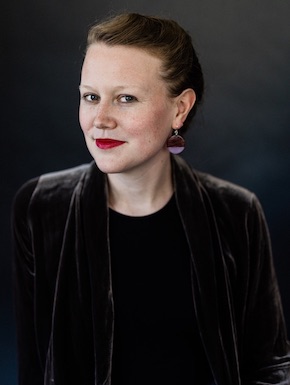
Kate Doyle is an American writer currently living in Amsterdam. Her debut short story collection I Meant It Once was published by Algonquin Books in the US and Corsair in the UK in 2023. A former bookseller, Kate has published her work in No Tokens, Electric Literature, A Public Space, Chicago Review of Books, Split Lip, Joyland, The Millions, Lit Hub, Wigleaf, ANMLY and elsewhere.
katedoylewriter.com
@sometimes_k8
@AlgonquinBooks
@CorsairBooks
Author photo by Alana Davis Photography

